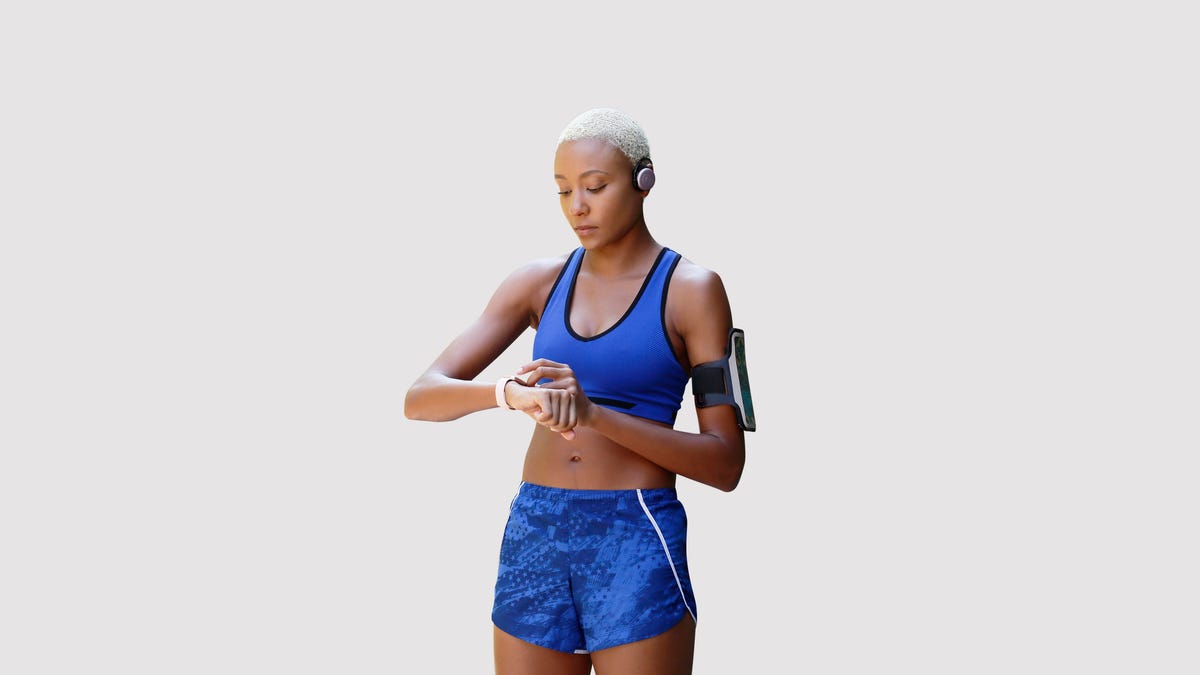 Why You Can Trust CNET
Why You Can Trust CNET The Truth Is Not All Nighttime Workouts Are Good For Your Sleep
When it comes to sleep disruptions, the time of day you exercise isn't as important as the type of exercise you do.

Life can get hectic, leaving you with little to no time to squeeze in a workout. Some have turned to the nighttime to get exercise, but is it bad to work out before bed?
The National Library of Medicine doesn't think so. In fact, it found the opposite -- people who engage in evening workouts experienced an increase in deep sleep. Not only may nighttime workouts help you wake up feeling refreshed, but they can also aid in muscle recovery.
That said, not all evening exercises are beneficial, and some might hinder your ability to sleep. Our guide to exercising before bed outlines which workouts improve sleep quality and which ones might keep you up.
Can exercise affect your sleep?
One nighttime workout you want to avoid is high-intensity interval training. During these sessions, you engage in short bursts of vigorous exercises -- think sprinting for 30 to 60 seconds followed by a cool down. It ramps your heart rate to the point where you may be left without breath. While there are ample benefits to this type of exercise, your body might not enjoy them right before you go to sleep.
It disrupts your body's internal clock, also known as your circadian rhythm. When you do high-intensity workouts in the evening, it shifts your body's cycle, resulting in delays in melatonin production. In turn, your body has trouble falling asleep because it's not receiving the melatonin it needs.
Moreover, engaging in this type of exercise can raise your body's temperature, provide a runner's high, increase your heart rate, and elevate cortisol. Cortisol is a hormone tasked with handling stress. During high-intensity interval training, your brain tells your body to release higher levels of cortisol.
If you engage in too many high-intensity workouts weekly (the recommended amount is two to three) you might experience Cortisol Creep -- excess cortisol production in the body. Relating back to sleep, it may affect your sleep patterns or could cause sleeplessness. That's why it's vital to do exercises that improve sleep quality.
Can exercise help you sleep better?
Low-impact exercise can improve your sleep quality. For chronic insomnia sufferers, moderate exercise can reduce the time it takes to fall asleep. When you engage in low-impact workouts, it doesn't disrupt your body's clock.
Having a regular exercise routine can help you reduce stress. As you reduce stress, you lower your cortisol levels. This in turn can help you sleep better.
With all of this in mind, how do you know when you're in a moderate workout? Taking a brisk walk, running on a treadmill and lifting weights are all great ways to get in a good workout without being too strenuous. Just don't engage in high-interval training right before you hit the sack.
How to exercise before bed without disrupting your sleep
Here's a guide to help you schedule your exercise while minimizing disruptions to your sleep:
1. Schedule your workouts: Being consistent with your exercise helps you receive the most benefit out of them, such as improved sleep. Set a time several days a week to get the process started. Even if it's a brisk, 20-minute walk, you'll notice the benefits within a few weeks.
2. Timing is key: Plan to do your workouts at least three hours before you sleep. It gives your body enough time to cool down from the exercise high. It can also help your body's temperature return to normal and your heart slow to your resting rate.
3. Aim for low-impact: Resistance training and aerobic exercises are the best before sleep. They're not high intensity, so you don't have to worry about increased cortisol levels or throwing your circadian rhythm off schedule. And they don't raise your body temperature much, allowing your body to return to normal levels before you sleep.
4. Stretch: Give yourself at least a few minutes before your workout and some after to stretch out your muscles. Doing this gives them time to recover and reduces the risk of waking up with a charlie horse -- not the most pleasant wake-up call.
5. Hydrate: Hydrate before, during and after your workout. It'll replenish the fluids you lost exercising, and you won't go to bed dehydrated, which can impair sleep quality.
6. Take some chill time: Taking a shower, doing some breathing exercises or listening to your favorite music can help you calm down from your workout. It also gives your body time to relax, preparing it for sleep.
Exercising before bed FAQ
Is it bad to workout before bed?
Moderate workouts before bed can help you fall asleep faster and have deeper sleep. Meanwhile, high-intensity workouts can impede your sleep quality, raising your cortisol levels and disrupting your body's internal clock.
When is the best time to workout?
For moderate workouts, any time of the day works. For high-intensity exercises, plan to do those earlier in the day (if possible) to prevent any sleeping disruptions.
Is it better to workout in the morning or at night?
The best time to exercise is when you can wiggle it into your routine. Most essential is being consistent with your schedule, as it can help your body adjust to the new behavior and keep you on track to experience the sleep-aiding benefits.